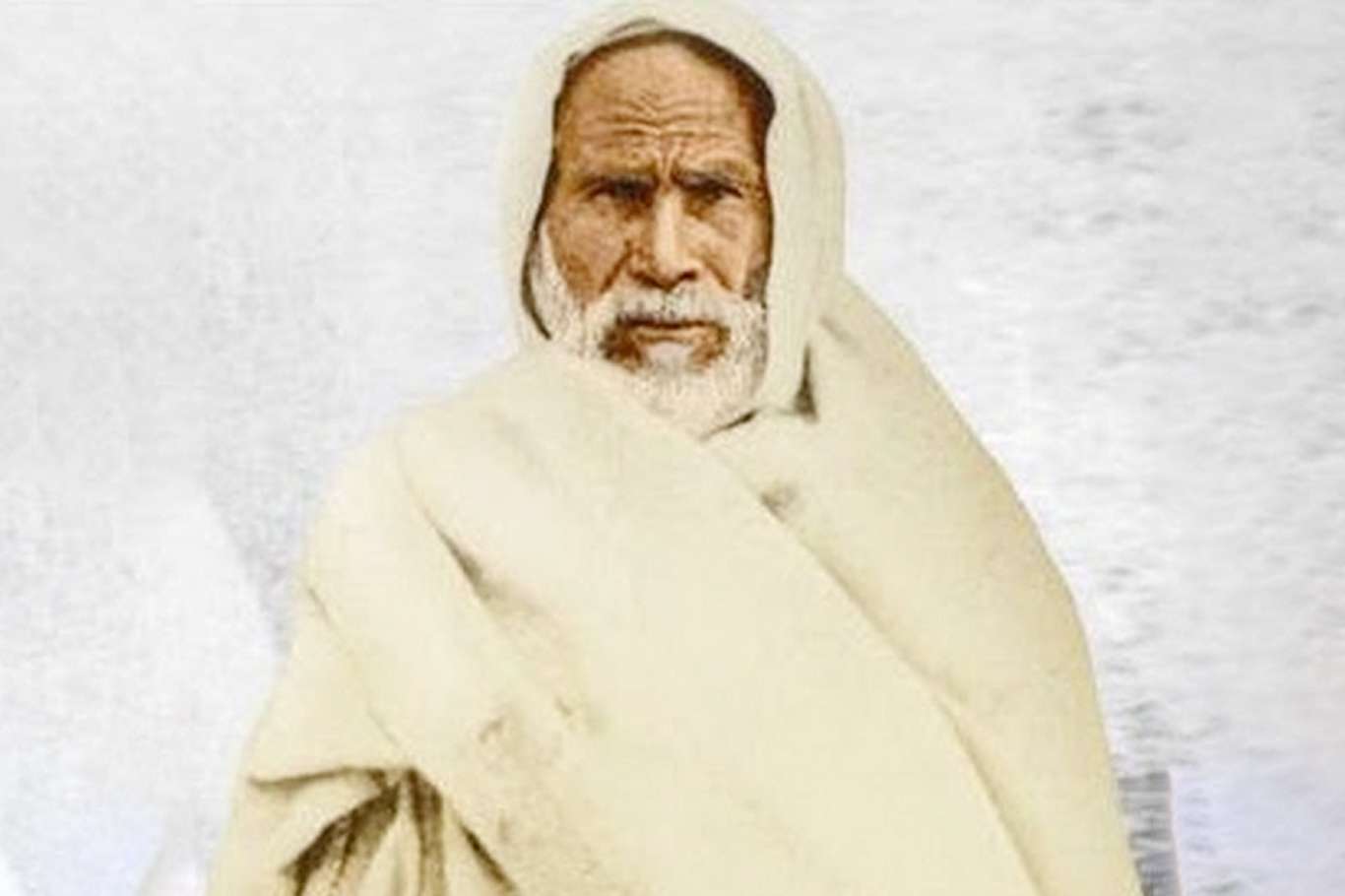The Lion of the Desert: Who is Omar al-Mukhtar?
Libyan hero nicknamed the "Lion of the Desert", who has become a worldwide symbol with his epic resistance against the invading Italian forces in Libya.

Mukhtar, who was born in the 1860s in the mountainous region of Libya, Jabal Ahdar, received his education in the Madrasahs of the Senusi Movement, which was active in this region.
Mukhtar, who attracted the attention of the leading figures of the movement with his success in education, gave an armed struggle against the French colony in Chad in 1899.
Omar al-Mukhtār (August 1858 – 16 September 1931), called The Lion of the Desert, known among the colonial Italians as Matari of the Mnifa, was the leader of native resistance in Cyrenaica (currently Eastern Libya) under the Senussids, against the Italian colonization of Libya. A teacher-turned-general, Omar was also a prominent figure of the Senussi movement, and he is considered the national hero of Libya and a symbol of resistance in the Arab and Islamic worlds.
By 1911, Italian colonial forces began the invasion of Libya, attacking Tripoli and Benghazi. Italian forces demanded the surrender of the Ottoman forces in the region, but the Ottoman troops refused, retreating inland with the Libyan local defense forces and fighting against the Italians.
With the outbreak of the Balkan War, while the Ottoman troops returned to Anatolia, the Italians captured the Tripoli, Fezzan, and Cyrenaica regions of the Tripolitania province.
Mudarris, who was a teacher in the fields of the Qur'an, Arabic, and Islamic sciences, as well as a warrior who knew geography closely, defeated the Italians thanks to the strategic war tactics he applied.
Mukhtar, who was nicknamed the "Lion of the Desert" for his success in wars, sent many occupation governors to his country despite his advanced age, during his 22-year struggle against Italy.
The fascist leader Benito Mussolini, who came to power after the change of administration in Italy, appointed General Rodolfo Graziani as the Italian governor of the region in 1930.
After the failed military attempts of the Italian forces under Graziani against the national insurgents, in 1931, with Mussolini's approval, Italy embarked on a bloody new tactic in the region.
The local population of about 100,000 people in the Jabal Ahdar region was sent to concentration camps on the coastline, the Egyptian border was closed and the support line of the Libyan insurgents was cut. Senusi troops led by Muhtar continued their struggle.
Mukhtar was ambushed and wounded on September 11, 1931, by the attacks of the Italian air force.
Mukhtar was tried by Italian forces in a so-called "court" at the POW camp in Suluk on September 15, 1931. Because all the necessary preparations for the death stand and execution were prepared in advance, and 20 thousand people, consisting of local people and political prisoners, were brought to the area to watch the verdict. Muhtar, who was sentenced to death here, was executed on September 16, 1931.
After meeting Mukhtar, Italian Commander Graziani, with whom Mukhtar was fighting, noted the following in his diary:
"He was of medium height, with a large build, with white hair, beard, and mustache. Despite this, he remained devout and poor."
Desert Lion on screen
The struggle of Omar al-Mukhtar, who became a national hero in Libya with his resistance against the Italians, also attracted the attention of Hollywood.
Syrian director Mustafa Akkad, known for his movie "The Call", which is about the birth of Islam, brought the audience together with Muhtar's struggle against the Italians in his movie "Lion of the Desert" (1981).
Oscar-winning actor Anthony Quinn portrays Ömer Muhtar, and "We are a nation that does not know how to surrender, we either win or we die," attributed to Muhtar in the film. words stuck in memory. These words of Mukhtar were also reflected in the banners carried by the Libyans during the demonstrations held during the process called "Arab Spring".
Instability prevails in Libya today
The Gaddafi administration, which ruled Libya with an "iron fist" for 42 years, was overthrown in 2011 with the military intervention of NATO during the "Arab Spring" process. However, in recent years, Libya has witnessed the bloody struggle of warlords supported by regional powers for natural resources and power.
Today, while Libya is struggling with bomb attacks, assassinations, extrajudicial executions, internal conflict, and economic depression, it seeks solutions to achieve stability.
The martyrdom anniversary of Omar al-Mukhtar (Ömer Muhtar), who has been fighting against the Italian colonialists for more than 20 years and is also known by the nicknames "the teacher of the martyrs" and "the teacher of the mujahideen", is declared a public holiday in Libya every year under the name "Martyr's Day".
